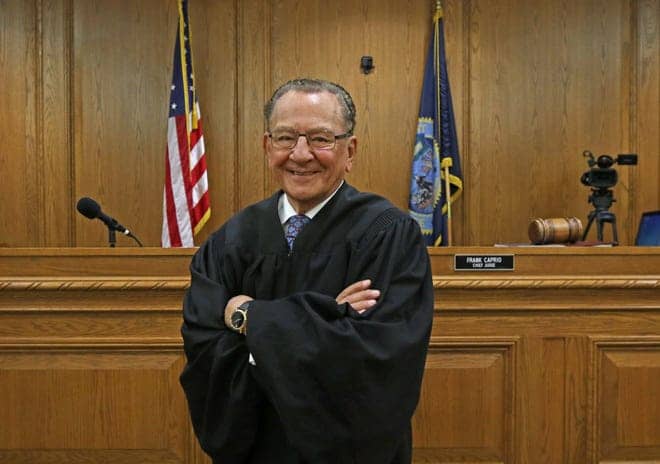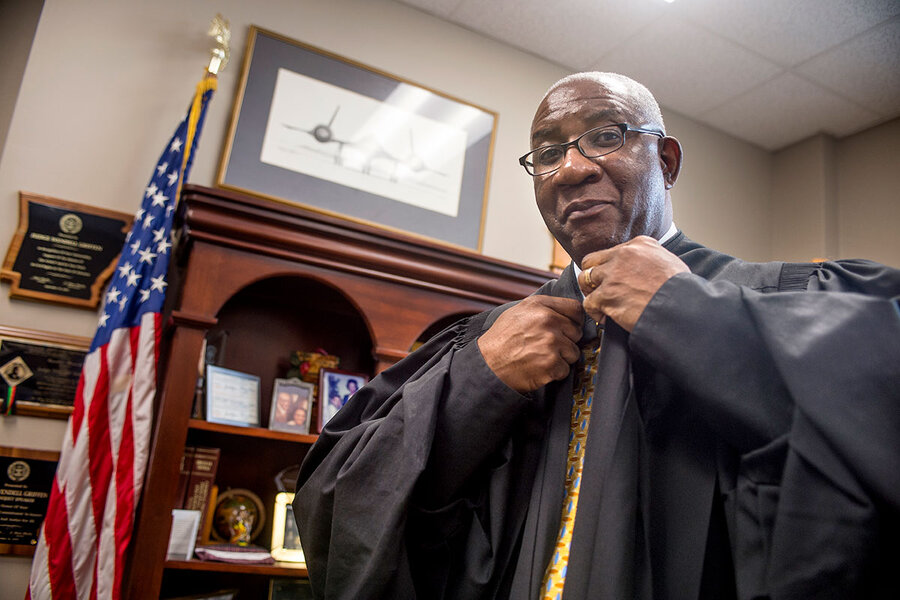
In the U.S. judicial system, judges are tasked with presiding over trials and maintaining order. They also review whether or not there are any illegality issues per the evidence submitted. Judges provide instructions to juries prior to their deliberations and in the case of bench trials, judges must decide the facts of the case and make a ruling. Additionally, judges are also responsible for sentencing convicted criminal defendants. Most cases are heard and settled by a jury.
About half of all judges are chosen by the president, including the Supreme Court justices and district judges. All are meant to ensure that everyone gets a fair shot at justice, no matter the color of their skin, their background, or their bank account.
Judges in federal courts, from district courts up to the U.S. Supreme Court, have the final say on issues that have an effect on the lives of every American, including basic civil rights, religious freedoms, voting rights, affirmative action, and in some cases, life or death. They lead court proceedings, use established laws and guidance to determine sentencing, and rule on the constitutionality of various laws and legal precedents.
We must ensure that anyone who serves as a judge is fair minded. We should pay close attention to all judicial nominations. In recent years, a concentrated attempt has been made to pack the district and circuit courts with extreme, right-wing judges. Given the large number of cases whose ultimate determination is made at the District or Court of Appeals level (over 90%), and the fact that some people are put on the bench for life, we cannot afford to be complacent.
ROLE OF JUDGES – FAQs
What are the qualifications for becoming a federal judge?
There are no formal, constitutional requirements for who may or may not serve as a federal judge. However, there are several informal, unwritten qualifications if an individual expects to be approved by the Senate. First, he or she must clearly exhibit a knowledge of the law and the U.S. Constitution. Attorneys, state or lower court judges, or law professors are most commonly tapped to serve.
How are judges appointed?
Under Article III of the U.S. Constitution, the President nominates candidates to serve on the federal District Courts, the Courts of Appeals, and the U.S. Supreme Court. The President sends the nominations to the U.S. Senate, which provides “advice and consent.” Normally, an individual may not serve on the court to which he or she has been nominated without being confirmed by the U.S. Senate (the President has the power to make temporary “recess” appointments when the Senate is not in session).
Over 90% of cases are decided at the District or Court of Appeals level.
How are federal judicial nominees selected?
Members of the U.S. Senate and sometimes Members of the House of Representatives who are in the same political party as the President or those whose ideology is in line with the President’s, make recommendations to fill federal judicial vacancies within their state or for the Court of Appeals that serves their state. These recommendations are then reviewed by the Department of Justice and the White House General Counsel’s office, which makes recommendations to the President. The President, however, sends the final decision to the Senate.
What is the Senate confirmation process?
After the President has submitted an individual’s name to serve on a federal court to the U.S. Senate, the nomination is referred to the Senate Judiciary Committee. The committee can take the following actions:
Either take no action on the nomination (in which case the nomination eventually expires when the Congress adjourns).
Approve the nomination and send it to the floor of the Senate for a vote, or the committee can disapprove a nomination, in which case the nomination is usually expired.
In extraordinary cases, a nomination can be brought before the full Senate for a vote even though the majority of the Senators on the Judiciary Committee felt the candidate was not qualified.
If the confirmation goes before the full Senate, then the nomination is once again voted on. If a simple majority (50% or more) of the Senators present vote in favor of the nominee, then the nominee is confirmed and may then take their position on the federal bench for life. In both the Judiciary Committee and the full Senate, votes may pass or fail by a recorded (roll call) vote, or by voice vote.
How long can a federal judge serve?
Under Article III of the U.S. Constitution, once confirmed a federal judge may serve a lifetime appointment, or until he or she retires. Congress can remove a sitting judge through a very lengthy process known as impeachment and conviction, although it has only chosen to do this a few times in the history of our country.
What is a recess appointment?
Under Article II of the U.S. Constitution, the President has the power to fill vacancies that may exist when the Senate is in recess. These appointments are only temporary, however, as they expire at the end of the Congressional session. As a rule, the President does not make wholesale recess appointments as it may antagonize members of the Senate and may result in some Senators refusing to consider the nominees for a permanent position, or voting against other nominations in retaliation.
Related posts
Global | Didi Angaye Earns A Distinction Award, Another Feather To The Cap
On a bright sunny day, in the month of July, 2024, the prestigious Staffordshire University located in the West Midlands of England organised its Award giving and Graduation ceremony to honour graduates of various educational programmes and courses which it offers. Didi Timipah Angaye,…
Olu Of Warri Bags Award In UK, Wife Advocates Return To Cultural Values
The Olu of Warri, Ogiame Atuwatse III, has received the Leadership and Community Development award at the 14th African Achievers Awards (AAA), which took place at the Parliament House, United Kingdom. The award was presented by a member of the House of Lords, London, Rt…
Brit Awards | Asake, Burna Boy And Other ‘New Cats’ Get Nominations
Nigerian singers Burna Boy, Asake, and Rema have been nominated for the 2024 Brit Awards. The nomination list for the annual music awards show was released on Wednesday 25, January 2024. Burna Boy and Asake made the ‘Best International Artiste’ category, while ‘Calm…
Brit Awards 2024 | The Full List Of Artist(e)s
This year’s Brits nominees have been revealed ahead of the ceremony in London in March. Dua Lipa is the first star confirmed to perform at the event – but how many awards is she up for? Musicians including Raye, Central Cee, J Hus and Blur are also…
Despite Increased Transfer Volume And Institutional Adoption, Bitcoin Stays Below $60K
Bitcoin’s price hovers around $59K as increased transfer volume indicates a stable demand among investors. CryptoQuant data indicates buyers are absorbing the panic selling pressure around the $57K price level. Bitwise’s latest report suggests that institutional investors are still buying Bitcoin despite the recent price…
Traders Focus On Meme Coins As Bitcoin, Ethereum And XRP Erase Recent Gains
Bitcoin, Ethereum and XRP dip under key support levels at $60,000, $2,600 and $0.60 respectively. Tron ecosystem’s meme launchpad SunPump generates over $1.1 million in revenue within twelve days of its launch. Tron network daily revenue reached a record high of $26.83 million on Tuesday,…
Top 10 Cryptocurrencies To Invest in January 2024
-Michael Adams From Bitcoin and Ethereum to Dogecoin and Tether, there are thousands of different cryptocurrencies, making it overwhelming when you’re first getting started in the world of crypto. To help you get your bearings, these are the top 10 cryptocurrencies based on their market…
The Risk And Reward Of ChatGPT In Cybersecurity
Juan is an experienced CTO with a demonstrated history of working in the computer and network security industry. He is an information technology professional skilled in SAP and Oracle applications, computer forensics, vulnerabilities research, IPS/IDS and information security. Unless you’ve been on a retreat in…











